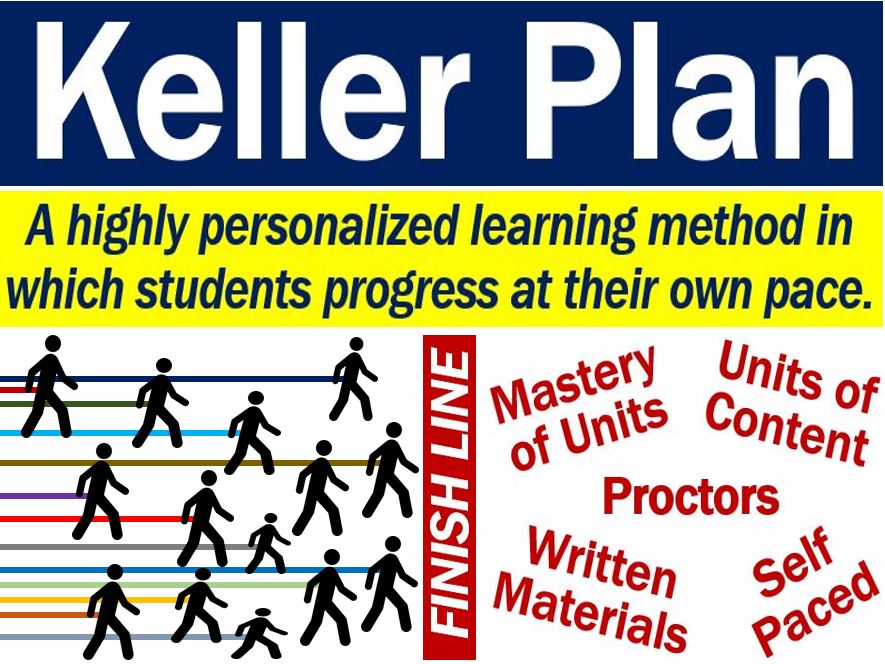Keller Plan – definition and meaning
The Keller Plan is a personalized learning method in which students receive material in small units. When they are ready, they take a test on the unit they have just completed. If they pass, they then move onto the next unit. Learners progress at a comfortable pace, i.e., their own pace.
We also refer to the Keller Plan as the PSI. PSI stands for the Personalized System of Instruction. Fred S. Keller, alongside Carolina Bori, Rodolpho Azzi, and J. Gilmour Sherman developed the plan in the 1960s.
Keller Plan instructors are, in fact, facilitators. The system has no punishments, and the instructors simply award pass or fail grades.
The Keller Plan was an innovative instruction method for the University of Brasilia, which opened in 1962.
According to Learning Theories:
“The Keller Plan (also called The Personalized System of Instruction) is an instructional method introduced by Fred Keller, J. Gilmour Sherman, and several other researchers in the 1960s.”
“This individualized learning method was oriented on improvement of high school learning.”

The Keller Plan – individual needs
Fred Keller wanted to tailor higher education teaching to the learner’s specific needs.
He first introduced the method in 1962 in the University of Brasilia’s Department of Psychology.
Educationalists say that the key features of Keller’s methods are the following:
Learning Pace
Learners progress at their own pace. The study group does not progress as one unit. In other words, each student progresses independently of other students.
Instructors suggest the order in which students should progress through the learning units. However, it is ultimately the student’s decision when they learn. It is also the student’s decision at what rate learning progresses.
Mastery of Each Unit
To advance from one unit to the next, the student must master a unit first.
When students pass an exam, they can then chose which unit to do next. However, if they fail, the instructor directs them to unit materials.
After studying those materials, they then do another exam.
Written Learning Materials
The bulk of the course consists of written learning materials. There are lectures and demonstrations. However, students only attend them when they are ready to appreciate them.
None of the exam questions relate to the lectures or demonstrations. Therefore, attending the demonstrations and lectures is optional.
Proctors
According to Learning Theories: “Proctors enhance the social aspect of educational process, enable repeated testing with immediate scoring and tutoring.”
How effective is the Keller Plan?
There has been a great deal of research into the effectiveness of the Keller Plan in higher education.
Most studies found that PSI had significantly positive effects on learning. More specifically, it yielded better results than more traditional lecture-based formats.
Wikipedia makes the following comment:
“However, in some cases, self-pacing was also seen to have problems with student withdrawal and procrastination.”
Video – Keller Plan
In this video, Raina Burditt provides an overview of the Personalized System of Instruction (PSI) as designed by Fred Keller.
PSI became very popular during the 1960s. However, from the 1970s onward, it gradually lost popularity, even though studies found that it was effective.
Advances in technology have made PSI relevant once again. In fact, some educators believe that it may become the dominant instructional model in years to come.

